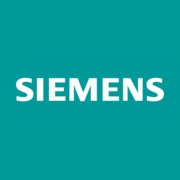
Best Internet of Things (IoT) 2026
What is Internet of Things Management Software? The Internet of Things (IoT) describes a network of physical objects that are connected by embedded sensors, software, and communications technologies to exchange data with other devices and systems using the internet. IoT Applications Smart Home - includes devices such as lighting, heat and air conditioning, security systems and locks, smoke detectors, AI personal assistants, and home appliances, all of which can be monitored remotely Medical ...
We’ve collected videos, features, and capabilities below. Take me there.
All Products
Learn More about Internet of Things (IoT) Software
What is Internet of Things Management Software?
The Internet of Things (IoT) describes a network of physical objects that are connected by embedded sensors, software, and communications technologies to exchange data with other devices and systems using the internet.
IoT Applications
- Smart Home - includes devices such as lighting, heat and air conditioning, security systems and locks, smoke detectors, AI personal assistants, and home appliances, all of which can be monitored remotely
- Medical and Health Care – supports personal health and fitness monitoring including wearables, data collection, and analysis for research
- Energy - smart grid power consumption monitoring, optimization, and control
- Infrastructure – monitoring bridges, railways, roads, and wind farms
- Buildings – monitoring and control of mechanical, electrical, and electronic systems
- Transportation – supports the real-time capture and integration of public and private transit information, includes connected vehicles, fleet management, air traffic, and freight monitoring
- Maritime – monitors ship capacity, availability, and control systems
- Smart cities - optimize services and the use of assets and resources
- Industrial / Manufacturing – monitoring and control of connected equipment, data capture, and operational analytics
- Farming –ecosystem monitoring, water management, harvesting
- Food Supply – improves supply chain efficiency
- Military – for reconnaissance, surveillance, munitions, vehicles, robots, human wearable biometrics
- Environment – monitoring of air, water, soil quality, and wildlife. Earthquake and tsunami early warning systems
There is increasing use of IoT for Connected Events - the monitoring of audience behavior and emotional responses at sporting events, fashion shows, concerts, and exhibitions - by measuring heart rates, temperature, crowd noise, and body language. This provides insights to boost engagement and improve marketing effectiveness.
Supported by machine learning and microservices, IoT Edge Device Computing allows data processing to be moved from the cloud to the device itself. This prevents latency and operational issues which are especially important for applications that are extremely time-sensitive such as autonomous driving.
There is a proliferation of smartphone apps that are used to control IoT devices, especially in the consumer home sector.
IoT devices are vulnerable to hacking and malware. IoT security, privacy, and safety issues are major concerns. IoT devices collect large amounts of sensitive data, and bad actors could interfere with devices in a way that might directly jeopardize public or personal safety. Blockchain technology is being deployed as a tool to address data protection and scalability issues. Ensuring that your home router is secure will protect your connected smart home devices.
Internet of Things Features
- Device Embedded Hardware Sensors
- IoT Application Software
- IoT Communications Software and Networks
- Integration of Sensors
- Asset Tracking
- Real-time Device Monitoring and Management
- Data Collection Hub
- Real-time Data Monitoring
- Real-time Analytics
- Dashboards
- Edge Computing
Internet of Things Comparison
Integration: How will your IoT selections will integrate with your current systems and operations?Consider the following when embarking upon an IoT initiative.Use Case: IoT is used for a broad range of public, private, industrial, and commercial purposes. It is necessary to conduct a thorough investigation and evaluation of which IoT hardware, software, and communication technologies best address your goals.Cost: Depending upon the scale of your IoT operations, the cost to establish and run your IoT can be quite high given the need for investment in hardware, software, connectivity, cloud storage, and support.Security and Privacy: Need to be fully addressed especially if your IoT devices control assets that can impact public safety or capture sensitive information.
Pricing Information
Pricing models vary quite a bit from number of messages sent/received to the hub, to more complex models incorporating not just number of messages, but connection time, device requests and rules engine actions. Pricing varies from around $200/month up to over $5,000/month depending on message volume and pricing model.
Internet of Things (IoT) FAQs
What does the Internet of Things (IoT) do?
What are the benefits of using the Internet of Things (IoT)?
- Improved Efficiency and Productivity
- Asset and Resource Optimization
- Cost Reduction
- Enhanced Operational and Customer Intelligence
- Improved Customer Experience
- Better Quality of Life
- Enhanced Public Safety



















